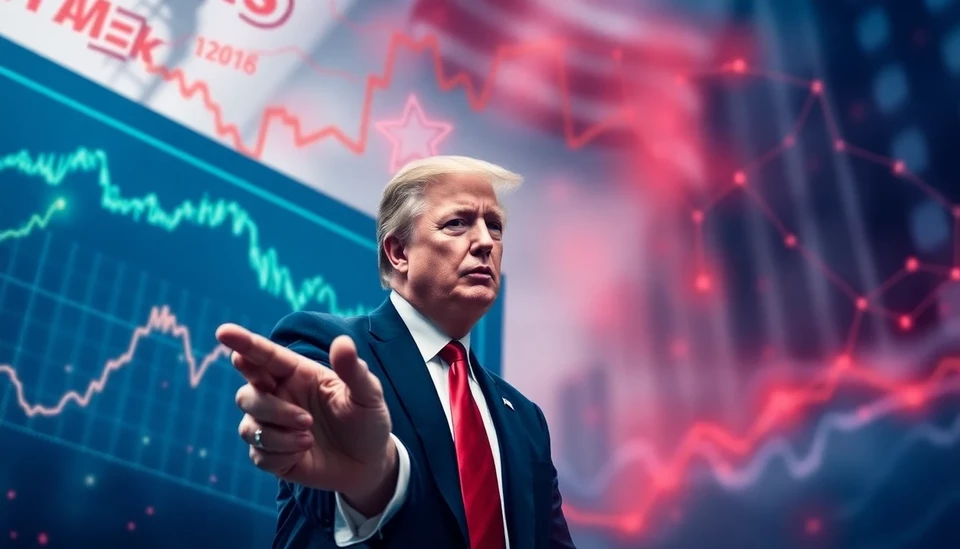
In a surprising move that has sent ripples through the financial markets, former President Donald Trump has unveiled a new series of tariffs aimed primarily at Chinese imports. This sudden escalation in trade tensions comes as a response to what Trump describes as unfair trade practices, further complicating the already delicate economic landscape.
Investors and analysts are reeling from the implications of these new tariffs, which are set to affect a multitude of goods ranging from consumer electronics to agricultural products. Initial reactions have resulted in a notable decline in stock indices, as market participants fear potential retaliation from China and the broader impact on global trade relations. The Dow Jones Industrial Average, for instance, saw a significant drop within hours of the announcement, reflecting widespread anxiety across various sectors.
Market specialists have voiced concerns about the potential long-term consequences of such tariffs, especially as they could exacerbate inflation rates and strain supply chains already stretched thin by the pandemic's aftermath. "This isn't just a trade war; it's a serious risk to economic recovery," stated one prominent economist. As uncertainty looms, many are asking whether this latest round of tariffs will lead to a cyclical pattern of retaliatory measures that could further destabilize global markets.
Compounding the situation, industry leaders have begun to respond with alarm. Many companies reliant on imports are now scrambling to adjust their business strategies to mitigate the financial hit from increased costs. For example, tech firms that rely heavily on Chinese manufacturing are bracing for significant price hikes, which, in turn, could lead to higher prices for consumers. Retailers are also warning customers that the impact of these tariffs might trickle down, resulting in steep price increases across various product categories.
In stark contrast to the Trump administration’s previous stance on trade, which focused on negotiation and incremental change, this latest move appears more aggressive and confrontational. Analysts speculate that this tactic aims not only to cater to Trump's core supporters but also to exert pressure on the current administration, complicating its diplomatic approach toward China.
What remains uncertain is how this new tariff strategy will unfold and its broader implications on international relations. While Trump has positioned these tariffs as a necessary measure to protect American jobs and industries, critics argue that they may instead lead to job losses in sectors dependent on global supply chains. The rhetoric surrounding these tariffs has sparked a heated debate over protectionism versus free trade, with significant implications for U.S. economic policy.
As the situation develops, market participants are urged to stay informed and prepared for increased volatility. With potential domino effects in play, the ripple effects of these tariffs could influence everything from consumer spending to inflation rates, ultimately shaping the economic landscape for years to come. Investors are advised to assess their portfolios carefully and consider the long-term ramifications of increasing trade tensions.
In conclusion, Trump's renewed tariff strategy represents a critical juncture in U.S.-China relations and poses considerable risks to the global economy. As reactions from markets and industries unfold, all eyes will be on how these developments influence economic policy and international trade agreements moving forward.
#TrumpTariff #TradeWar #Stocks #EconomicImpact #InvestorAlert #MarketVolatility #ChinaRelations #GlobalEconomy
Author: Laura Mitchell




